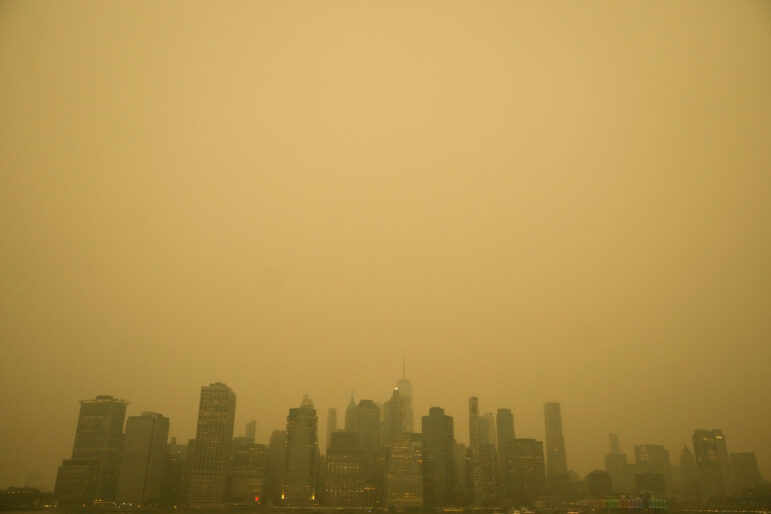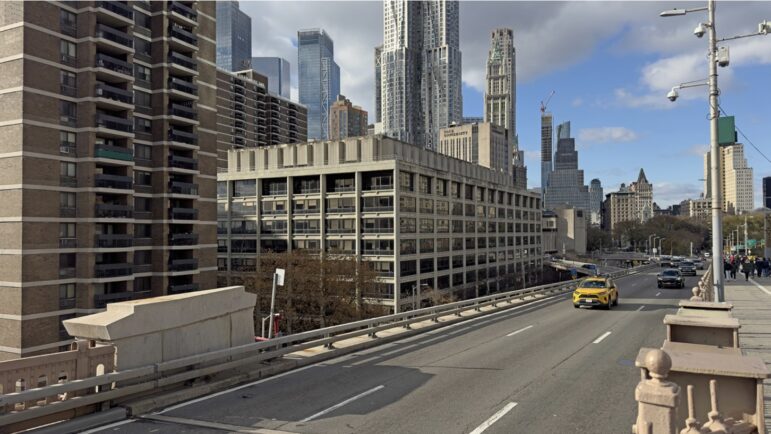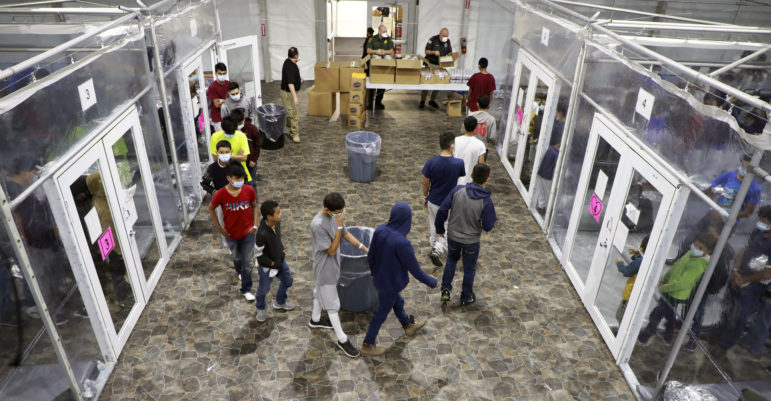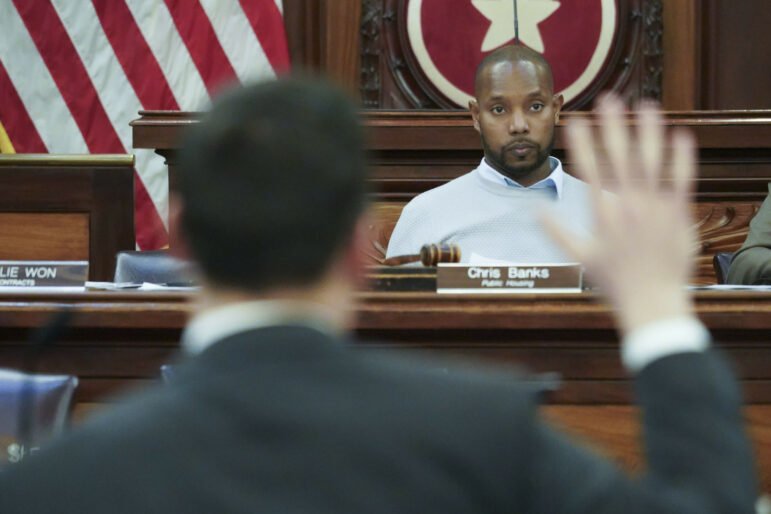“The climate crisis requires more than empty words and the too-little-too-late warnings we’re getting in New York. Without action to curb our reliance on the fossil fuels supercharging this crisis, this hot, toxic summer is only going to get hotter, more expensive, and more dangerous.”

Emergency preparedness and responses are crucial, but they do not prevent these climate emergencies from happening in the first place. Decisive climate action does. We need real commitments from our leaders to transition New York off the fossil fuels supercharging the climate crisis and health-harming pollution.
On Wednesday, the New York City Council is holding an oversight hearing on the Adams’ administration’s response to June’s smoke-filled apocalyptic air. It is imperative that the Council review the mayor’s response to assess what should have been done to protect New Yorkers.
But even if the mayor had taken appropriate, proactive, and timely steps to keep New Yorkers informed and protected, it would not have been enough. Emergency preparedness and responses are crucial, but they do not prevent these climate emergencies from happening in the first place. Decisive climate action does. We need real commitments from our leaders to transition New York off the fossil fuels supercharging the climate crisis and health-harming pollution.
It’s only the second week of July, but we’re already well into a summer of fossil fuel-driven extremes. June’s wildfire smoke had us choking on toxic air, even inside our homes. Last week’s heat wave—part of the planet’s hottest week on record—not only had us sweating as soon as the sun came up, but it came with another round of fossil fuel-driven dangerous air quality.
Poor air quality and heat waves impact all of us, but low-income New Yorkers—who are more likely to have asthma or other respiratory conditions and can’t afford to stay indoors running air conditioners and air purifiers all day—suffer the most. These are the New Yorkers that the Adams Administration should have had in mind when the smoke arrived in June.
There are clear steps that local government can take during these events, from opening up cooling centers with purified air, ordering a “Code Red” to ensure the street homeless have safe access to shelter and distributing masks. There must also be clear communication and education so New Yorkers can be better prepared when we’re thrown into a dangerous climate event. These are only stopgap measures, but they can save lives.
City and state officials are quick to cast blame and remind New Yorkers that these events are due to climate change, but New Yorkers don’t need reminders. The families of the 370 New Yorkers who died last year from heat-related deaths especially don’t need reminders, nor do those of the estimated 1,000 who die each year from respiratory and other health problems caused by air pollution.
These reminders rang especially empty after Gov. Kathy Hochul attempted to roll back New York State’s landmark Climate Law earlier this year. And just earlier this summer, the same week the sky turned orange and the city’s asthma ER visits doubled, the state failed to pass the NY HEAT Act, crucial legislation that would seriously reduce New York’s contributions to climate change and save future lives. To truly address climate change and prevent future harm, our state and local government need to take bold, meaningful action.
The NY HEAT Act would stop the expansion of the dirty, toxic fracked gas system that heats up the planet, increases the likelihood for wildfires, and harms our health. On top of that, the Act would lower utility bills by eliminating $200 million in subsidies for gas expansion that we all pay in our monthly gas bills. And low and middle income New Yorkers would have their utility bills capped at 6 percent of monthly income, saving up to $75 per month—freeing up money for food, rent, and medicine. These households are the most impacted by volatile gas prices and high energy bills, paying three times more of their income on energy bills than other families.
Stopping gas expansion will go a long way toward fighting climate change in New York, where one-third of our state’s greenhouse gas emissions come from buildings. The state passed the All-Electric Building Act earlier this year to ensure new buildings will use clean, non-fossil fueled energy sources, but that work is not complete without the NY HEAT Act. The numbers are even more staggering in New York City, where fossil fuels used to heat, cool, and power buildings generate nearly 70 percent of the city’s climate-heating pollution.
That’s why we also need Mayor Adams to step up and fully implement and enforce Local Law 97. Local Law 97, passed in 2019, requires large buildings to reduce their energy usage and emissions, which will help New Yorkers save even more money over time and enable the city to fight climate change more effectively.
In District 33 (Councilmember Restler’s District), we’re working hard to educate building owners on how to make energy efficiency upgrades and access financing to invest in cost-saving building improvements, but we need similar efforts citywide. This is our city’s landmark climate law, and Mayor Adams must not cave to the corporate real-estate lobby fighting to gut it. Instead, Mayor Adams must fully implement and enforce Local Law 97 to protect the lives and livelihoods of New Yorkers.
The climate crisis requires more than empty words and the too-little-too-late warnings we’re getting in New York. Without action to curb our reliance on the fossil fuels supercharging this crisis, this hot, toxic summer is only going to get hotter, more expensive, and more dangerous.
Governor Hochul and Mayor Adams must step up, pass NY HEAT, and fully implement Local Law 97.
Lincoln Restler represents the 33rd Council District and is co-chair of the Council’s Progressive Caucus. Alex Beauchamp is the Northeast Region Director at the national environmental advocacy group Food & Water Watch.








